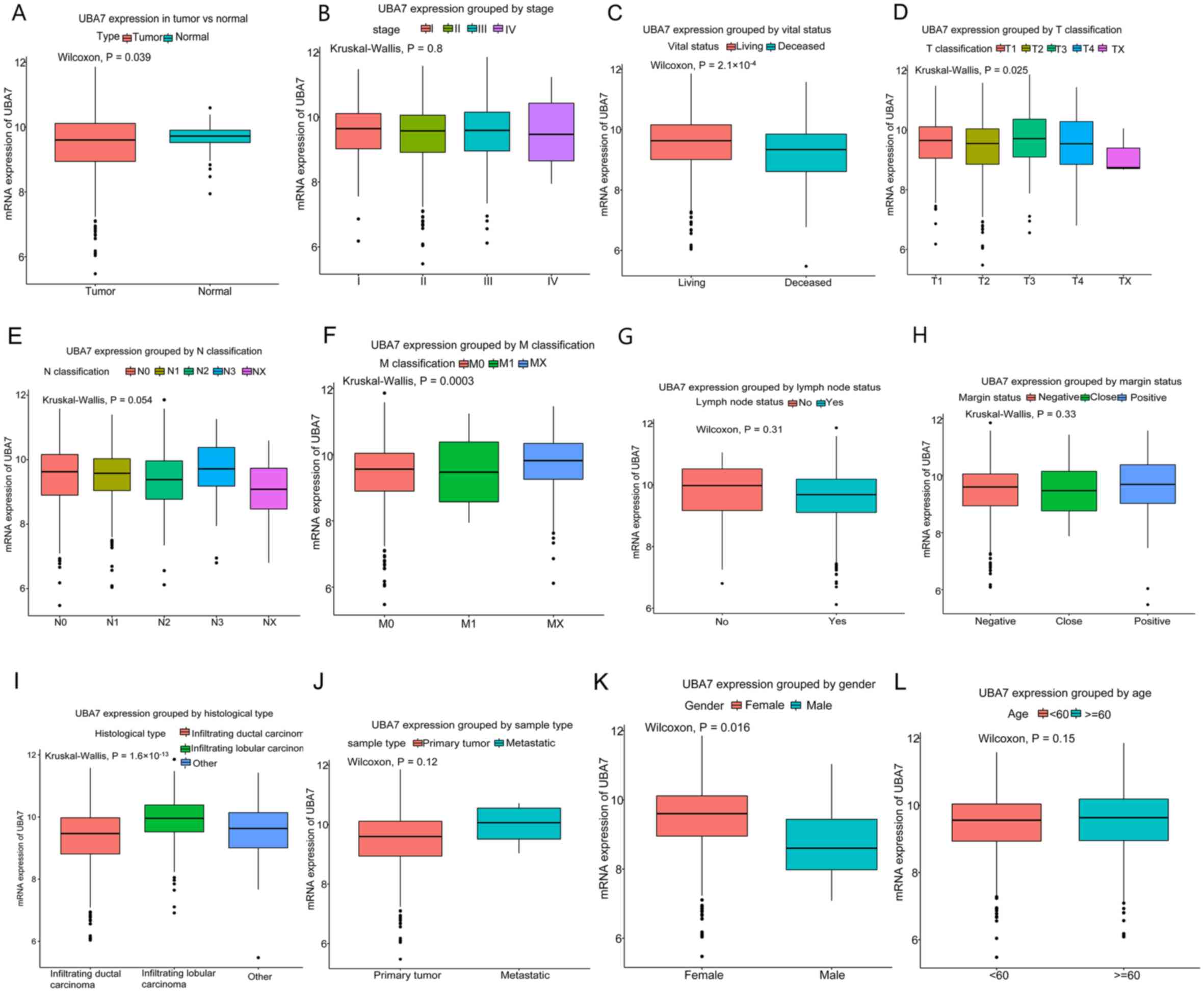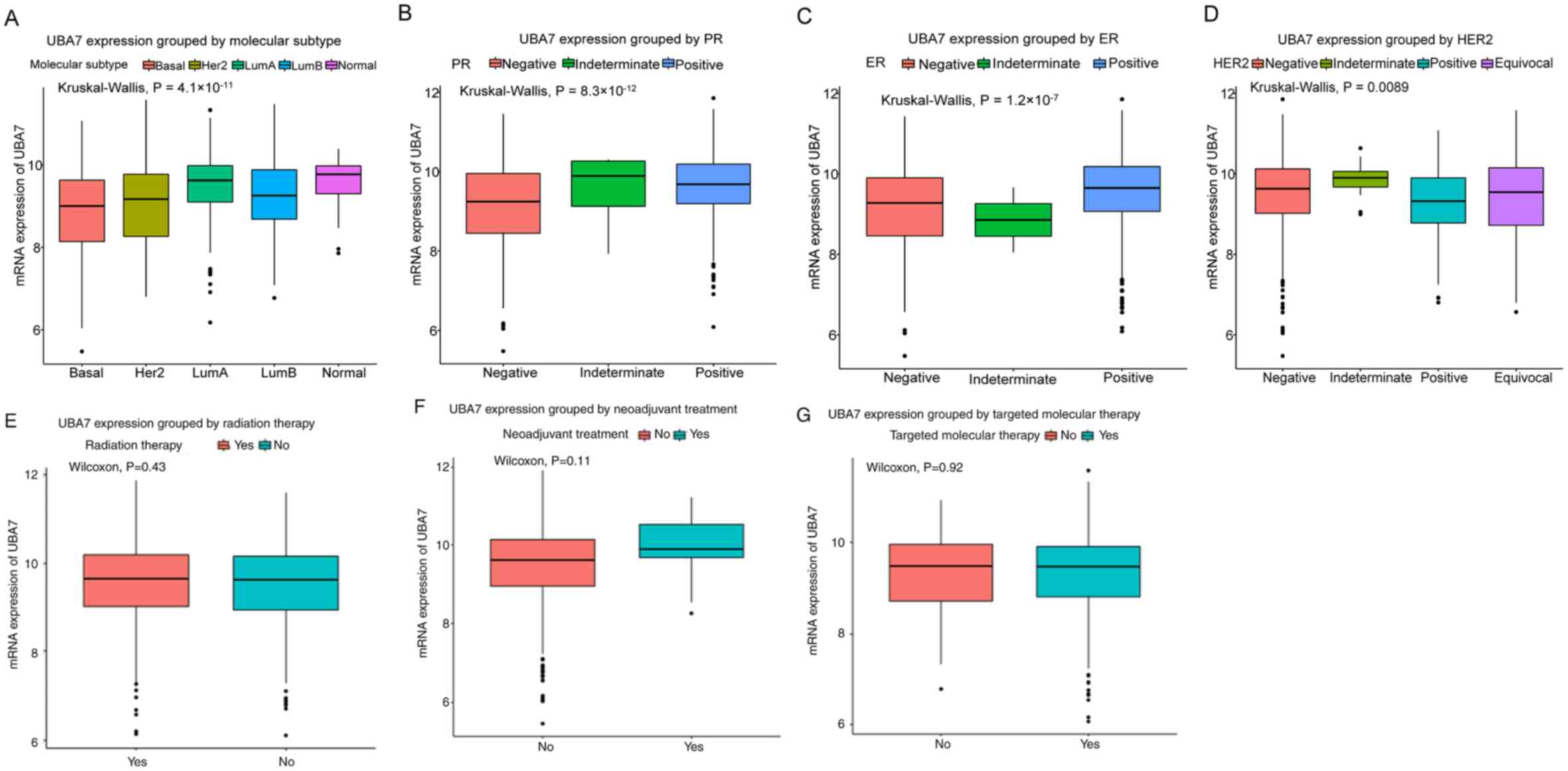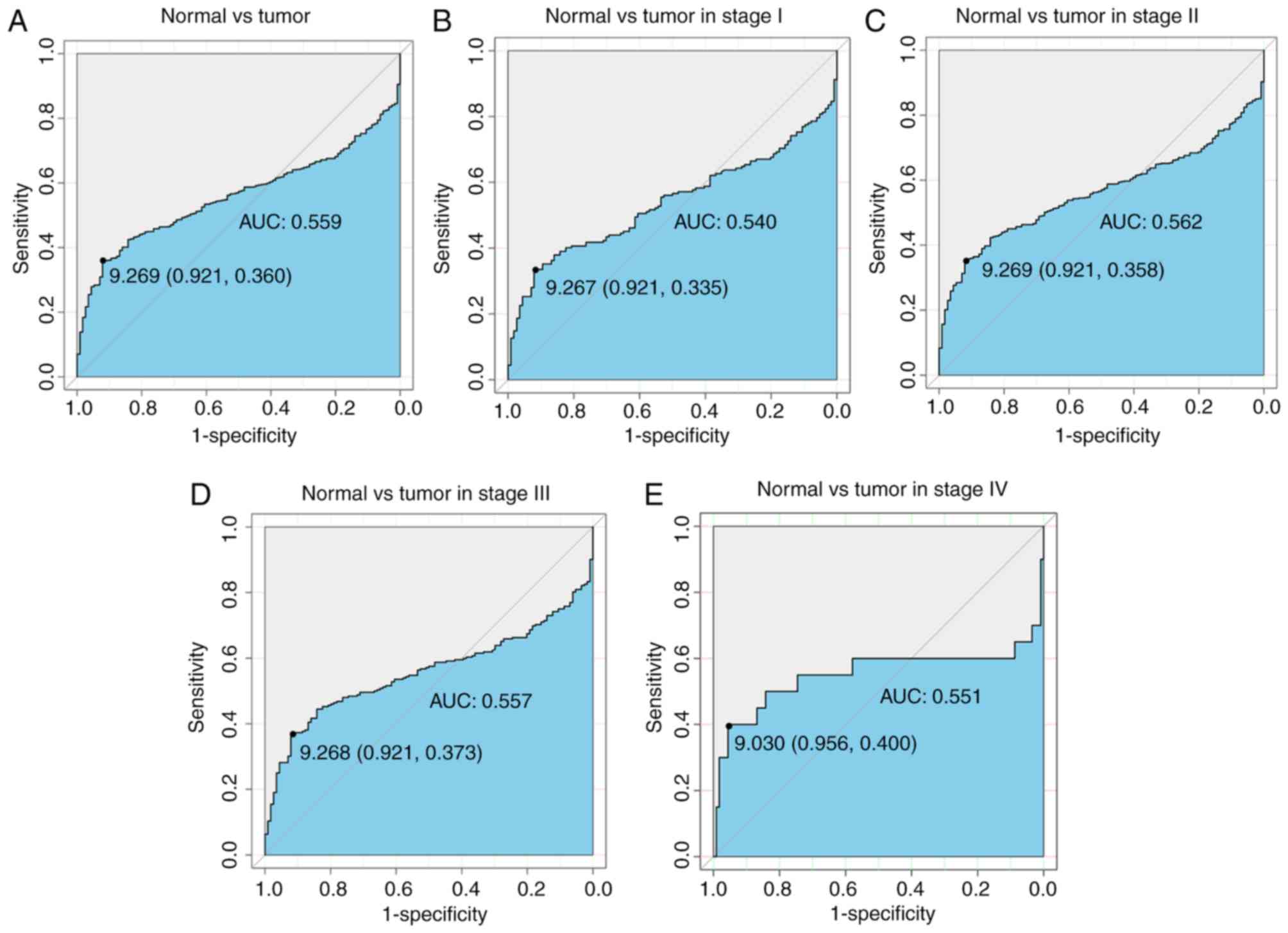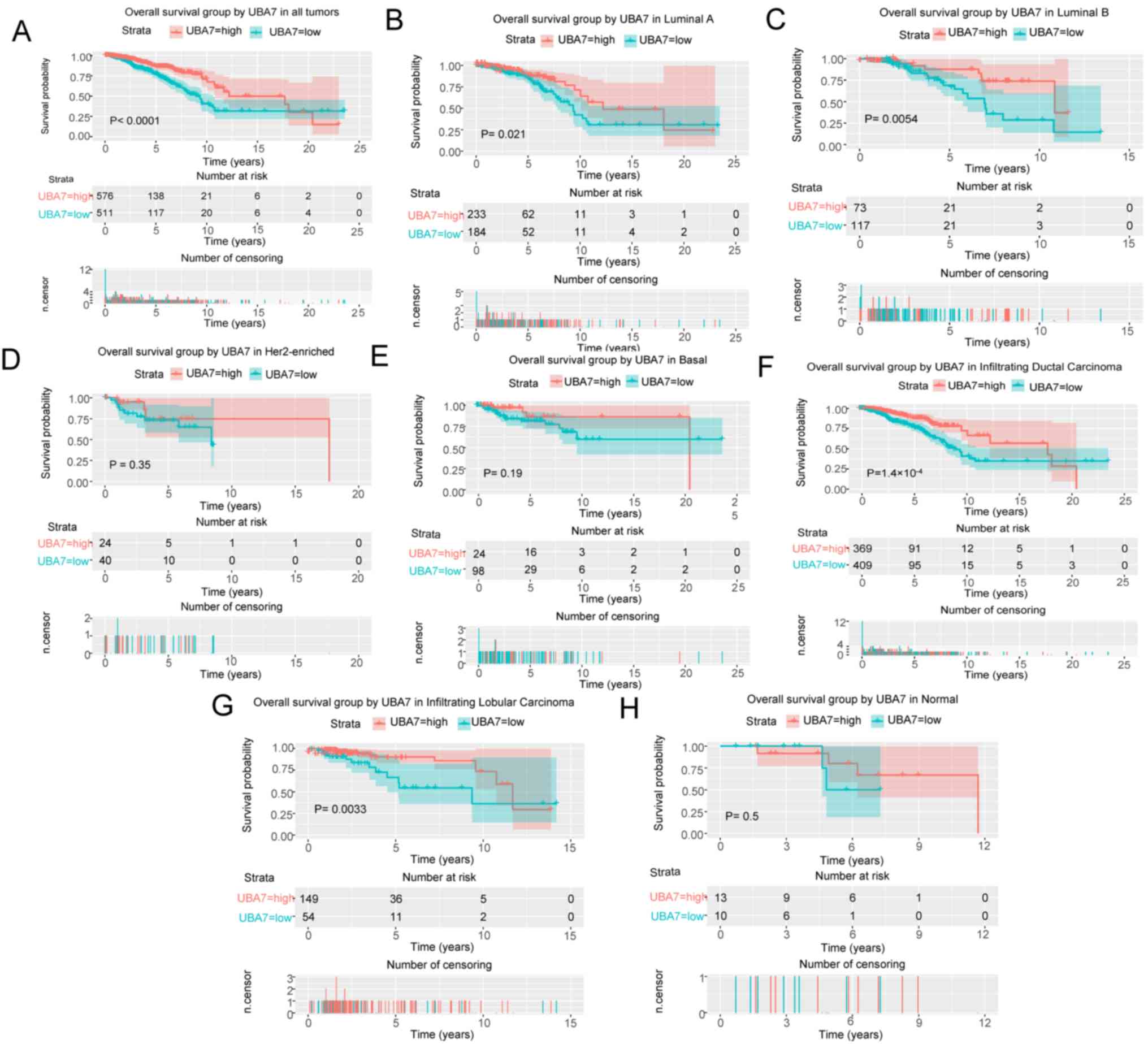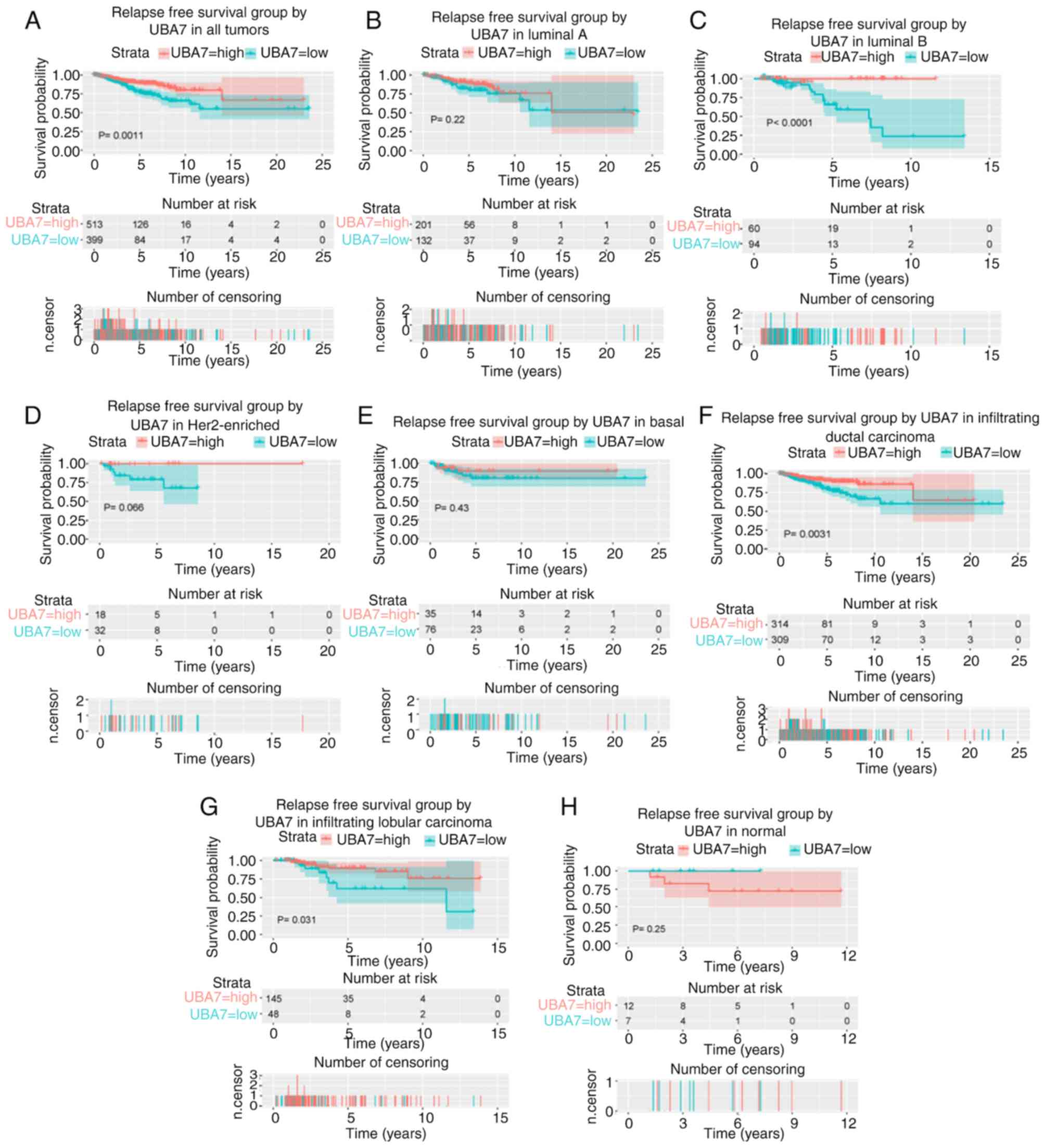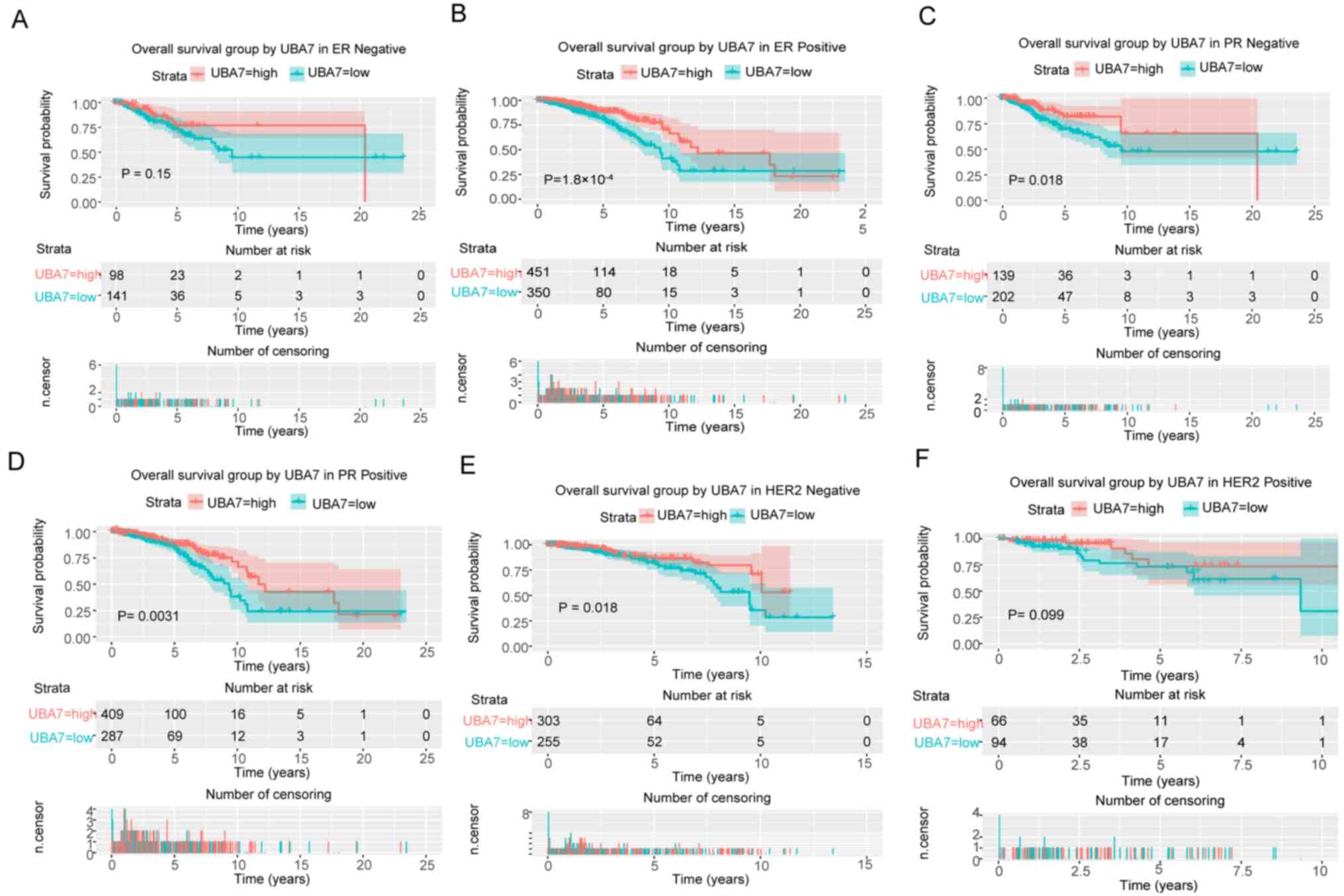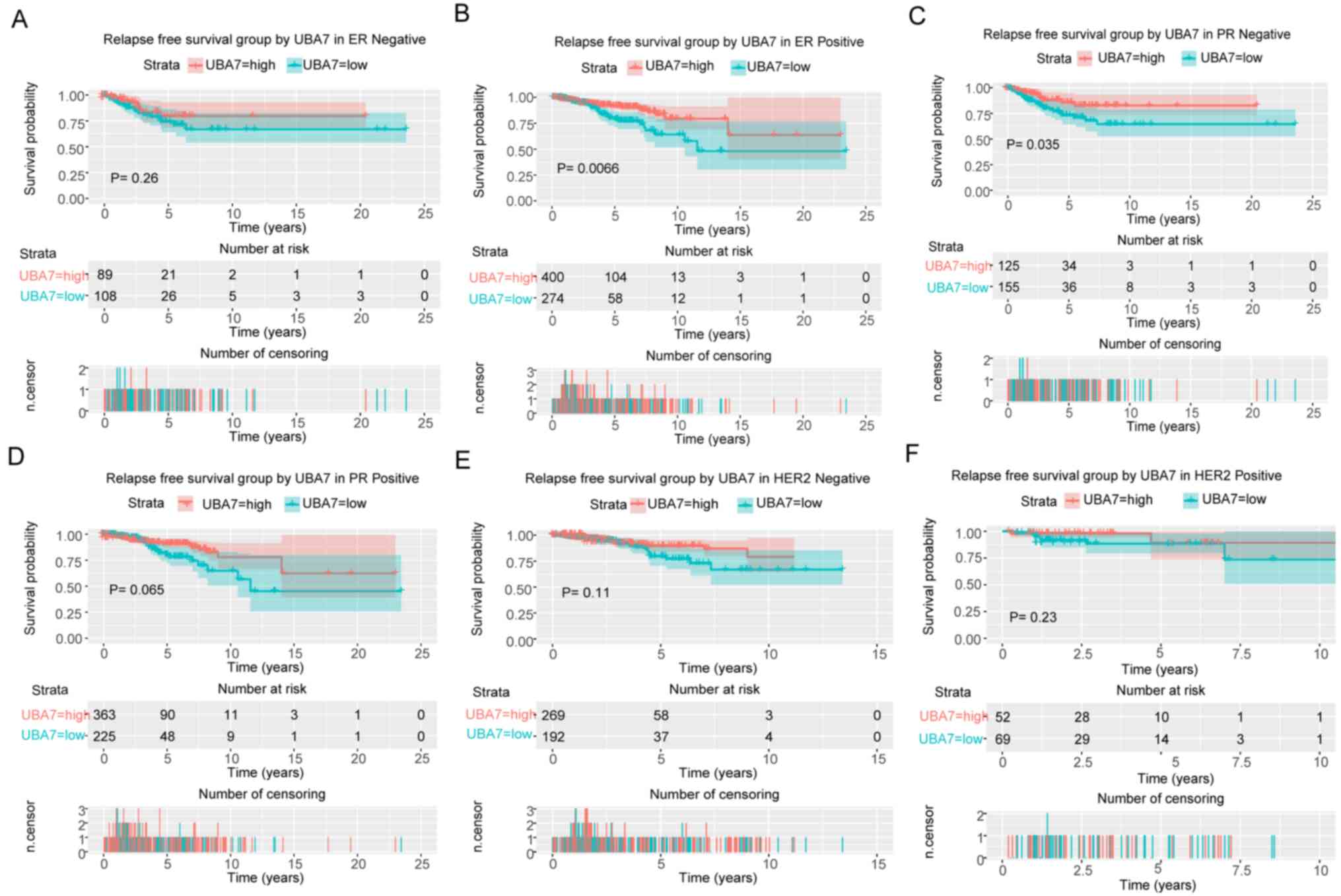|
1
|
Howlader N, Noone AM, Krapcho M, Miller D,
Brest A, Yu M, Ruhl J, Tatalovich Z, Mariotto A, Lewis DR, Chen HS,
Feuer EJ and Cronin KA: Lifetime risk (Percent) of dying from
cancer by site and race/ethnicity: Female, Total U.S., 2014–2016.
SEER Cancer Statistics Review. 1975-2016, National Cancer
Institute; Bethesda, MD, USA:
|
|
2
|
American Cancer Society, . Breast Cancer
Facts & Figures 2017–2018. American Cancer Society, Inc.;
Atlanta, GA: 2017
|
|
3
|
Zhang X, Bogunovic D, Payelle-Brogard B,
Francois-Newton V, Speer SD, Yuan C, Volpi S, Li Z, Sanal O,
Mansouri D, et al: Human intracellular ISG15 prevents
interferon-α/β over-amplification and auto-inflammation. Nature.
517:89–93. 2015. View Article : Google Scholar : PubMed/NCBI
|
|
4
|
Jeon YJ, Yoo HM and Chung CH: ISG15 and
immune diseases. Biochim Biophys Acta. 1802:485–496. 2010.
View Article : Google Scholar : PubMed/NCBI
|
|
5
|
Zhou MJ, Chen FZ, Chen HC, Wan XX, Zhou X,
Fang Q and Zhang DZ: ISG15 inhibits cancer cell growth and promotes
apoptosis. Int J Mol Med. 39:446–452. 2017. View Article : Google Scholar : PubMed/NCBI
|
|
6
|
Zhao C, Denison C, Huibregtse JM, Gygi S
and Krug RM: Human ISG15 conjugation targets both IFN-induced and
constitutively expressed proteins functioning in diverse cellular
pathways. Proc Natl Acad Sci USA. 102:10200–10205. 2005. View Article : Google Scholar : PubMed/NCBI
|
|
7
|
Darb-Esfahani S, Sinn BV, Rudl M, Sehouli
J, Braicu I, Dietel M and Denkert C: Interferon-stimulated gene, 15
kDa (ISG15) in ovarian high-grade serous carcinoma: Prognostic
impact and link to NF-κB pathway. Int J Gynecol Pathol. 33:16–22.
2014. View Article : Google Scholar : PubMed/NCBI
|
|
8
|
Yin X, Cong X, Yan M and Zhang DE:
Deficiency of a potential 3p21.3 tumor suppressor gene UBE1L (UBA7)
does not accelerate lung cancer development in K-rasLA2 mice. Lung
Cancer. 63:194–200. 2009. View Article : Google Scholar : PubMed/NCBI
|
|
9
|
Feng Q, Sekula D, Guo Y, Liu X, Black CC,
Galimberti F, Shah SJ, Sempere LF, Memoli V, Andersen JB, et al:
UBE1L causes lung cancer growth suppression by targeting cyclin D1.
Mol Cancer Ther. 7:3780–3788. 2008. View Article : Google Scholar : PubMed/NCBI
|
|
10
|
Jiang A, Li Y, Wang P, Shan X, Jiang P,
Wang X and Feng Q: Mechanism of dose-dependent regulation of UBE1L
by polyphenols in human bronchial epithelial cells. J Cell Biochem.
116:1553–1562. 2015. View Article : Google Scholar : PubMed/NCBI
|
|
11
|
Pitha-Rowe I, Petty WJ, Feng Q,
Koza-Taylor PH, Dimattia DA, Pinder L, Dragnev KH, Memoli N, Memoli
V, Turi T, et al: Microarray analyses uncover UBE1L as a candidate
target gene for lung cancer chemoprevention. Cancer Res.
64:8109–8115. 2004. View Article : Google Scholar : PubMed/NCBI
|
|
12
|
Jiang AP, Zhou DH, Meng XL, Zhang AP,
Zhang C, Li XT and Feng Q: Down-regulation of epidermal growth
factor receptor by curcumin-induced UBE1L in human bronchial
epithelial cells. J Nutr Biochem. 25:241–249. 2014. View Article : Google Scholar : PubMed/NCBI
|
|
13
|
Samur MK: RTCGAToolbox: A new tool for
exporting TCGA Firehose data. PLoS One. 9:e1063972014. View Article : Google Scholar : PubMed/NCBI
|
|
14
|
R Core Team: A language and environment
for statistical computing. R Foundation for Statistical Computing;
Vienna, Austria: 2012, Available online at. https://www.R-project.org/
|
|
15
|
Jiao Y, Fu Z, Li Y, Meng L and Liu Y: High
EIF2B5 mRNA expression and its prognostic significance in liver
cancer: A study based on the TCGA and GEO database. Cancer Manag
Res. 10:6003–6014. 2018. View Article : Google Scholar : PubMed/NCBI
|
|
16
|
Jiao Y, Li Y, Lu Z and Liu Y: High
trophinin-associated protein expression is an independent predictor
of poor survival in liver cancer. Dig Dis Sci. 64:137–143. 2019.
View Article : Google Scholar : PubMed/NCBI
|
|
17
|
Jiao Y, Fu Z, Li Y, Zhang W and Liu Y:
Aberrant FAM64A mRNA expression is an independent predictor of poor
survival in pancreatic cancer. PLoS One. 14:e02112912019.
View Article : Google Scholar : PubMed/NCBI
|
|
18
|
Jiao Y, Li Y, Jiang P, Han W and Liu Y:
PGM5: A novel diagnostic and prognostic biomarker for liver cancer.
PeerJ. 7:e70702019. View Article : Google Scholar : PubMed/NCBI
|
|
19
|
Jiao Y, Li Y, Liu S, Chen Q and Liu Y:
ITGA3 serves as a diagnostic and prognostic biomarker for
pancreatic cancer. Onco Targets Ther. 12:4141–4152. 2019.
View Article : Google Scholar : PubMed/NCBI
|
|
20
|
Hou L, Zhang X, Jiao Y, Li Y, Zhao Y, Guan
Y and Liu Z: ATP binding cassette subfamily B member 9 (ABCB9) is a
prognostic indicator of overall survival in ovarian cancer.
Medicine (Baltimore). 98:e156982019. View Article : Google Scholar : PubMed/NCBI
|
|
21
|
Sun Z, Sun L, He M, Pang Y, Yang Z and
Wang J: Low BCL7A expression predicts poor prognosis in ovarian
cancer. J Ovarian Res. 12:412019. View Article : Google Scholar : PubMed/NCBI
|
|
22
|
Li Y, Jiao Y, Fu Z, Luo Z, Su J and Li Y:
High miR-454-3p expression predicts poor prognosis in
hepatocellular carcinoma. Cancer Manag Res. 11:2795–2802. 2019.
View Article : Google Scholar : PubMed/NCBI
|
|
23
|
Cai H, Jiao Y, Li Y, Yang Z, He M and Liu
Y: Low CYP24A1 mRNA expression and its role in prognosis of breast
cancer. Sci Rep. 9:137142019. View Article : Google Scholar : PubMed/NCBI
|
|
24
|
Cui Y, Jiao Y, Wang K, He M and Yang Z: A
new prognostic factor of breast cancer: High carboxyl ester lipase
expression related to poor survival. Cancer Genet. 239:54–61. 2019.
View Article : Google Scholar : PubMed/NCBI
|
|
25
|
Kok K, Hofstra R, Pilz A, van den Berg A,
Terpstra P, Buys CH and Carritt B: A gene in the chromosomal region
3p21 with greatly reduced expression in lung cancer is similar to
the gene for ubiquitin-activating enzyme. Proc Natl Acad Sci USA.
90:6071–6075. 1993. View Article : Google Scholar : PubMed/NCBI
|
|
26
|
McLaughlin PM, Helfrich W, Kok K, Mulder
M, Hu SW, Brinker MG, Ruiters MH, de Leij LF and Buys CH: The
ubiquitin-activating enzyme E1-like protein in lung cancer cell
lines. Int J Cancer. 85:871–876. 2000. View Article : Google Scholar : PubMed/NCBI
|
|
27
|
Kok K, Van den Berg A, Veldhuis PM, Franke
M, Terpstra P and Buys CH: The genomic structure of the human UBE1L
gene. Gene Expr. 4:163–175. 1995.PubMed/NCBI
|
|
28
|
Borsini A, Cattaneo A, Malpighi C, Thuret
S, Harrison NA; MRC ImmunoPsychiatry Consortium, ; Zunszain PA and
Pariante CM: Interferon-alpha reduces human hippocampal
neurogenesis and increases apoptosis via activation of distinct
STAT1-dependent mechanisms. Int J Neuropsychopharmacol. 21:187–200.
2018. View Article : Google Scholar : PubMed/NCBI
|
|
29
|
Kitareewan S, Pitha-Rowe I, Sekula D,
Lowrey CH, Nemeth MJ, Golub TR, Freemantle SJ and Dmitrovsky E:
UBE1L is a retinoid target that triggers PML/RARalpha degradation
and apoptosis in acute promyelocytic leukemia. Proc Natl Acad Sci
USA. 99:3806–3811. 2002. View Article : Google Scholar : PubMed/NCBI
|
|
30
|
Carpi A, Nicolini A, Antonelli A, Ferrari
P and Rossi G: Cytokines in the management of high risk or advanced
breast cancer: An update and expectation. Curr Cancer Drug Targets.
9:888–903. 2009. View Article : Google Scholar : PubMed/NCBI
|
|
31
|
Ren WB, Xia XJ, Huang J, Guo WF, Che YY,
Huang TH and Lei LC: Interferon-γ regulates cell malignant growth
via the c-Abl/HDAC2 signaling pathway in mammary epithelial cells.
J Zhejiang Univ Sci B. 20:39–48. 2019. View Article : Google Scholar : PubMed/NCBI
|















